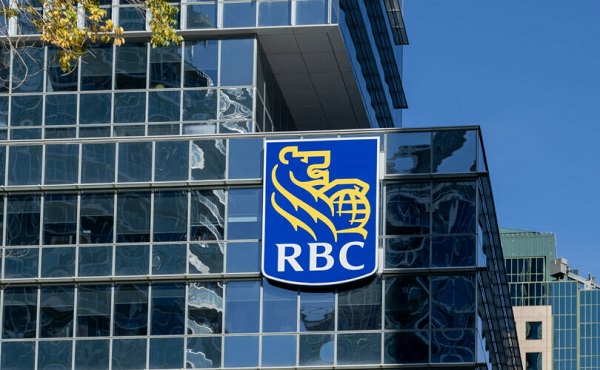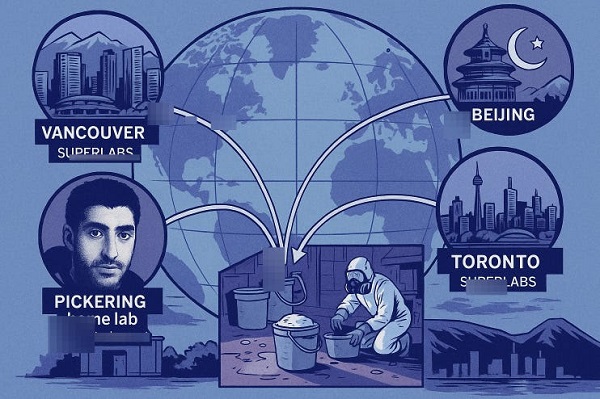Business
Corporate head offices are fleeing Canada

From the Fraser Institute
Canada is losing corporate head offices. Between 2012 and 2022, one-in-20 head offices closed or merged with other companies, according to Statistics Canada data, which track the number of large and mid-sized Canadian-based companies over time. Head office employment has also dwindled, dropping by around 6 per cent since 2012.
While Canadian corporate headquarters are concentrated in Ontario, Quebec, Alberta and British Columbia, almost all provinces have lost head offices since 2012. In some cases, this can be attributed to energy companies exiting, merging or scaling back their operations in Canada following the plunge in oil prices from 2014 to 2016 and the emergence of an investment-chilling federal regulatory environment. That said, the decline in corporate headquarters and related employment has been broadly-based.
Why should Canadians care?
Head offices serve as “command and control centres” for key decisions about people, products, processes, technologies and strategies for growth. They create local demand for services such as accounting, law, engineering, management consulting, finance and advertising. People who work in these supplier industries, like those employed directly by companies’ headquarters, also earn above-average wages and salaries. A robust head office sector bolsters the tax base to help pay for public services. It also has a positive impact on the extent of private-sector support for education, health care, and arts and charities.
What can be done? Canada has little prospect of “poaching” head offices from elsewhere. Indeed, there is a risk that some Canadian companies in sectors such as energy, forestry, technology, and pipelines could relocate their headquarters to the United States. Instead, policymakers should ensure that Canada has a business environment that helps retain head offices and creates opportunities for more local firms to scale into larger enterprises.
Unfortunately, Canada is hamstrung by a poor policy environment for business growth, including an antiquated tax system that defies understanding even by the most skilled tax accountants, complex and inefficient regulatory processes affecting many industries, internal trade barriers that fragment the domestic market, heavy direct government involvement in multiple sectors of the economy, and a federal government that seemingly lacks interest in doing much to improve the efficiency and productivity of the national economy.
For example, the combined federal-provincial business tax rate doubles or triples if companies grow their net income above a modest level (typically, $500,000). Provincial payroll taxes kick in at thresholds that encourage “micro-businesses” and impose higher tax burdens on mid-sized companies. Research and development tax credits are skewed to benefit very small businesses. Canada also levies high personal tax rates at relatively low income thresholds compared to most other advanced economies, including the U.S. and the United Kingdom. The most skilled employees—managers, professionals, scientists, technologists and so on—are internationally mobile. Many can and will leave Canada for better opportunities in other jurisdictions.
In truth, Canada today is not a particularly attractive location to situate head office jobs, nor to undertake the kind of high-value corporate activities that depend on the presence of senior management and deep pools of professional and technical talent.
Canada cannot afford to see the continued loss of head offices. Governments at all levels should enact policies to support a strong head office sector. And they should avoid taking steps that will spur a further exodus of successful Canadian companies and our most talented people.
Author:
Business
Top Canadian bank ditches UN-backed ‘net zero’ climate goals it helped create

From LifeSiteNews
RBC’s dropping of its ‘net zero’ finance targets came just one day after the Liberal Party under Mark Carney was re-elected in Canada.
Just one day after the re-election of the Liberal Party under Mark Carney, the Royal Bank of Canada joined the growing list of top banks withdrawing from a United Nations-backed “net zero” alliance that supports the eventual elimination of the nation’s oil and gas industry in the name of “climate change.”
The Royal Bank of Canada (RBC) on Tuesday quietly dumped its UN-backed Net-Zero Banking Alliance (NZBA) sustainable finance targets, which called for banks to come in line with the push for net-zero carbon emissions by 2050. The NZBA is a subgroup of the Glasgow Financial Alliance for Net Zero (GFANZ), which Carney was co-chair of until recently.
RBC’s departure comes despite the fact that it was one of the NZBA’s founding members.
RBC joins Toronto-Dominion Bank (TD), Bank of Montreal (BMO), National Bank of Canada, and the Canadian Imperial Bank of Commerce (CIBC) who earlier in the year said they were withdrawing from the NZBA.
The bank announced the move away from a green agenda in its 2024 sustainability report, noting it would no longer look to pursue a $500 billion sustainable finance goal. It cited changes to Canada’s federal Competition Act as the reason.
The changes to the act, known as the “greenwashing law,” now mandate that companies provide proof of their environmental claims.
“We have reviewed our methodology and have concluded that it may not have appropriately measured certain of our sustainable finance activities,” noted RBC in its report.
RBC also noted it would not make public any of its metrics regarding its energy supply ratio.
Monday’s election saw Liberal leader Carney beat out Conservative rival Poilievre, who also lost his seat. The Conservatives managed to pick up over 20 new seats, however, and Poilievre has vowed to stay on as party leader, for now.
Carney worked as the former governor of the Bank of Canada and Bank of England and spent many years promoting green financial agendas.
The GFANZ was formed in 2021 while Carney was its co-chair. He resigned from his role in the alliance right before he announced he would run for Liberal leadership to replace former Prime Minister Justin Trudeau.
Large U.S. banks such as Morgan Stanley, JPMorgan Chase & Co, Wells Fargo and Bank of America have all withdrawn from the group as well.
Since taking office in 2015, the Liberal government, first under Trudeau and now under Carney, has continued to push a radical environmental agenda in line with those promoted by the World Economic Forum’s “Great Reset” and the United Nations’ “Sustainable Development Goals.” Part of this push includes the promotion of so called net-zero energy by as early as 2035.
Business
Overregulation is choking Canadian businesses, says the MEI

 From the Montreal Economic Institute
From the Montreal Economic Institute
The federal government’s growing regulatory burden on businesses is holding Canada back and must be urgently reviewed, argues a new publication from the MEI released this morning.
“Regulation creep is a real thing, and Ottawa has been fuelling it for decades,” says Krystle Wittevrongel, director of research at the MEI and coauthor of the Viewpoint. “Regulations are passed but rarely reviewed, making it burdensome to run a business, or even too costly to get started.”
Between 2006 and 2021, the number of federal regulatory requirements in Canada rose by 37 per cent, from 234,200 to 320,900. This is estimated to have reduced real GDP growth by 1.7 percentage points, employment growth by 1.3 percentage points, and labour productivity by 0.4 percentage points, according to recent Statistics Canada data.
Small businesses are disproportionately impacted by the proliferation of new regulations.
In 2024, firms with fewer than five employees pay over $10,200 per employee in regulatory and red tape compliance costs, compared to roughly $1,400 per employee for businesses with 100 or more employees, according to data from the Canadian Federation of Independent Business.
Overall, Canadian businesses spend 768 million hours a year on compliance, which is equivalent to almost 394,000 full-time jobs. The costs to the economy in 2024 alone were over $51.5 billion.
It is hardly surprising in this context that entrepreneurship in Canada is on the decline. In the year 2000, 3 out of every 1,000 Canadians started a business. By 2022, that rate had fallen to just 1.3, representing a nearly 57 per cent drop since 2000.
The impact of regulation in particular is real: had Ottawa maintained the number of regulations at 2006 levels, Canada would have seen about 10 per cent more business start-ups in 2021, according to Statistics Canada.
The MEI researcher proposes a practical way to reevaluate the necessity of these regulations, applying a model based on the Chrétien government’s 1995 Program Review.
In the 1990s, the federal government launched a review process aimed at reducing federal spending. Over the course of two years, it successfully eliminated $12 billion in federal spending, a reduction of 9.7 per cent, and restored fiscal balance.
A similar approach applied to regulations could help identify rules that are outdated, duplicative, or unjustified.
The publication outlines six key questions to evaluate existing or proposed regulations:
- What is the purpose of the regulation?
- Does it serve the public interest?
- What is the role of the federal government and is its intervention necessary?
- What is the expected economic cost of the regulation?
- Is there a less costly or intrusive way to solve the problem the regulation seeks to address?
- Is there a net benefit?
According to OECD projections, Canada is expected to experience the lowest GDP per capita growth among advanced economies through 2060.
“Canada has just lived through a decade marked by weak growth, stagnant wages, and declining prosperity,” says Ms. Wittevrongel. “If policymakers are serious about reversing this trend, they must start by asking whether existing regulations are doing more harm than good.”
The MEI Viewpoint is available here.
* * *
The MEI is an independent public policy think tank with offices in Montreal, Ottawa, and Calgary. Through its publications, media appearances, and advisory services to policymakers, the MEI stimulates public policy debate and reforms based on sound economics and entrepreneurship.
-

 Alberta2 days ago
Alberta2 days agoIt’s On! Alberta Challenging Liberals Unconstitutional and Destructive Net-Zero Legislation
-

 Alberta2 days ago
Alberta2 days agoAlberta’s future in Canada depends on Carney’s greatest fear: Trump or Climate Change
-

 2025 Federal Election1 day ago
2025 Federal Election1 day agoThe Liberals torched their own agenda just to cling to power
-

 Crime13 hours ago
Crime13 hours agoCanada Blocked DEA Request to Investigate Massive Toronto Carfentanil Seizure for Terror Links
-

 Agriculture2 days ago
Agriculture2 days agoLiberal win puts Canada’s farmers and food supply at risk
-

 Business1 day ago
Business1 day agoTrump says he expects ‘great relationship’ with Carney, who ‘hated’ him less than Poilievre
-

 Business1 day ago
Business1 day agoCanada urgently needs a watchdog for government waste
-

 International2 days ago
International2 days agoNigeria, 3 other African countries are deadliest for Christians: report



